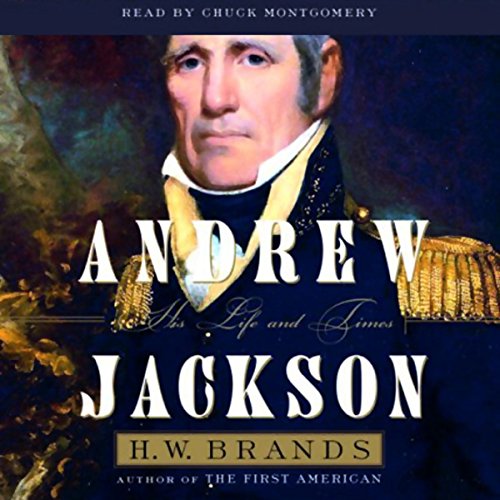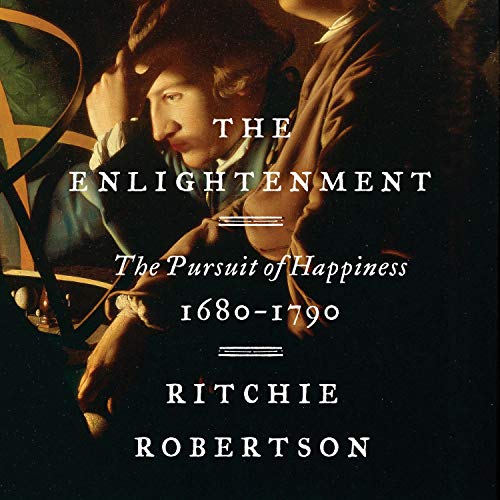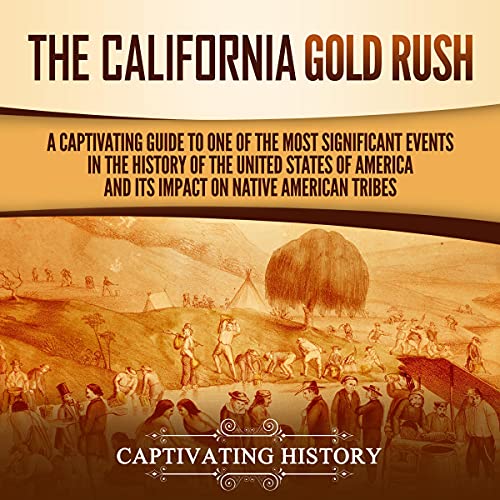
 Audible sample
Audible sample  Playing...
Playing... 
 Paused
Paused  Your audiobook is waiting!
Your audiobook is waiting!
Enjoy a free trial on us
$0.00$0.00
- Click above for unlimited listening to select audiobooks, Audible Originals, and podcasts.
- One credit a month to pick any title from our entire premium selection — yours to keep (you'll use your first credit now).
- You will get an email reminder before your trial ends.
- $14.95$14.95 a month after 30 days. Cancel online anytime.
Buy
-12% $11.78$11.78
The Age of Gold: The California Gold Rush and the New American Dream
 Audible Audiobook
– Abridged
Audible Audiobook
– Abridged
By the Author of the Bestselling Pulitzer Prize Finalist THE FIRST AMERICAN
THEY WENT WEST TO CHANGE THEIR LIVES AND IN THE BARGAIN THEY CHANGED THE WORLD. THIS IS THE EXTRAORDINARY STORY OF THE MEN AND WOMEN OF THE GOLD RUSH.
When gold was first discovered on the American River above Sutter's Fort in January 1848, California was sparsely populated frontier territory not yet ceded to the United States from Mexixo. The discovery triggered a massive influx as hundreds of thousands of people scrambled to California in search of riches, braving dangerous journeys across the Pacific, around Cape Horn, and through the Isthmus of Panama, as well as across America's vast, unsettled wilderness. Cities sprang up overnight, in response to the demand for supplies and services of all kinds. By 1850, California had become a state—the fastest journey to statehood in U.S. history. It had also become a symbol of what America stood for and of where it was going.
In The Age of Gold, H. W. Brands explores the far-reaching implications of this pivotal point in U.S. history, weaving the politics of the times with the gripping stories of individuals that displays both the best and the worse of the American character. He discusses the national issues that exploded around the ratification of California's statehood, hastening the clouds that would lead to the Civil War. He tells the stories of the great fortunes made by such memorable figures as John and Jessie Fremont, Leland Stanford and George Hearst—and of great fortunes lost by hundreds now forgotten by history. And he reveals the profound effect of the Gold Rush on the way Americans viewed their destinies, as the Puritan ethic of hard work and the gradual accumulation of worldly riches gave way to the notion of getting rich quickly.
- Listening Length6 hours
- Audible release dateNovember 27, 2002
- LanguageEnglish
- ASINB00007KSES
- VersionAbridged
- Program TypeAudiobook
People who viewed this also viewed
- Audible Audiobook
- Audible Audiobook
- Audible Audiobook
- Audible Audiobook
- Audible Audiobook
People who bought this also bought
- Audible Audiobook
- Audible Audiobook
- Audible Audiobook
- Audible Audiobook
- The California Gold Rush: A Captivating Guide to One of the Most Significant Events in the History of the United States of America and Its Impact on Native American Tribes
 Audible Audiobook
Audible Audiobook
Related to this topic
- Audible Audiobook
- Audible Audiobook
- Audible Audiobook
- Audible Audiobook
- Audible Audiobook
Product details
| Listening Length | 6 hours |
|---|---|
| Author | H. W. Brands |
| Narrator | Brian Mancinelli |
| Audible.com Release Date | November 27, 2002 |
| Publisher | Random House Audio |
| Program Type | Audiobook |
| Version | Abridged |
| Language | English |
| ASIN | B00007KSES |
| Best Sellers Rank | #268,807 in Audible Books & Originals (See Top 100 in Audible Books & Originals) #212 in Expeditions & Discoveries #1,287 in US State & Local History #1,521 in Expeditions & Discoveries World History (Books) |
Customer reviews
Customer Reviews, including Product Star Ratings help customers to learn more about the product and decide whether it is the right product for them.
To calculate the overall star rating and percentage breakdown by star, we don’t use a simple average. Instead, our system considers things like how recent a review is and if the reviewer bought the item on Amazon. It also analyzed reviews to verify trustworthiness.
Learn more how customers reviews work on AmazonReviews with images
-
Top reviews
Top reviews from the United States
There was a problem filtering reviews right now. Please try again later.
The first thing Brands analyzes in Age of Gold is how the masses that flocked to California actually got there and where they came from. By using personal stories, Brands really brings the voyages and the hardships to life. He finds individuals who came to California from Chile, Australia, Europe and the Eastern U.S. and explains what was unique and common to each of their experiences. It's truly amazing to someone living in the age of commercial jets to read about the trails of getting from New York to San Francisco in 1850, no matter the choice of land or sea.
The second aspect of Brand's analysis is the culture of California in the 1850s and beyond. How the cities of the territory emptied on the discovery of gold and then filled up. Brands talks about the bar and brothel filled towns and settlements and the initial lack of women in California. He also points out how hard it was to set up a civil society with everyone in town simply for the purpose of getting rich quickly off of gold. The rapidity with which California goes through different phases is fascinating.
Brands then looks at how California's population explosion forced the statehood debate for California into the fore in Congress and ultimately forced the slavery debate into prominence again. Every state that came into the Union at this time was hotly contested as to whether it would be a free state or a slave state, with huge ramifications for the balance of free/slave power in congress.
The whole of the story is told through peoples' stories and experiences and has a very personal feel. Well worth reading.
Top reviews from other countries
This is a wonderful book, well-written and pacy, and it covers far more than just the lives and wealth of the men and women - Americans and immigrants alike - who rushed to California to strike it lucky. It explores how the Gold Rush impacted the rest of the country, the role of California in upsetting the precarious balance between slave and free states that resulted in the Civil War, the way the ripples of gold spread out to affect the rest of the world, most particularly in the concept of the gold standard and free trade.
Whilst I might have liked a bit more about the day-to-day lives of the miners, more about life in the new city of San Francisco or in the mining camps themselves, for a broad-ranging, comprehensive overview of the Gold Rush and its place in California and America's history, the book can't be bettered.



















